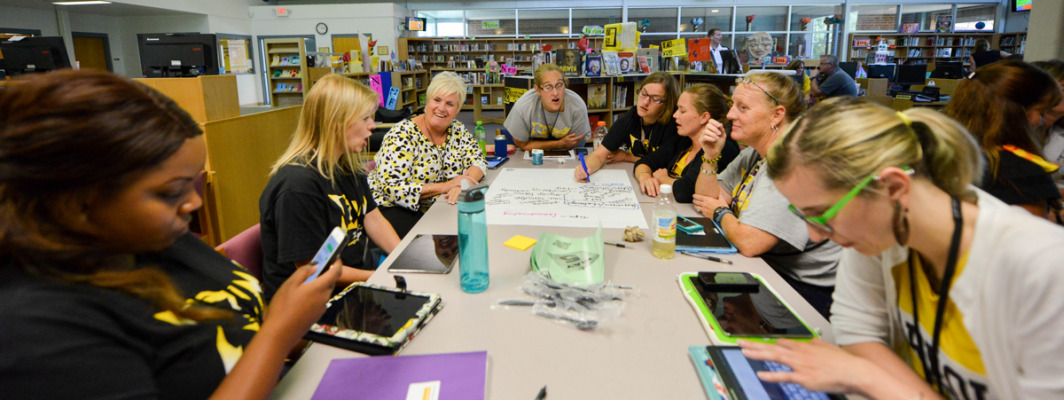
Digital Promise is crowdsourcing best practices for piloting learning technology tools, and we want to hear from you!
Digital Promise will award up to ten school or district leaders who submit a response by March 27 with a $1,000 stipend for a trip to San Francisco, including workshops with leading software companies, in partnership with the Education Technology Industry Network. And, we’ll highlight the best examples from across the country on our website for others to learn from.
This spring, Digital Promise is working with six school districts conducting education technology pilots. They are outstanding districts with strong leadership – and we know they’re not alone.
Our Improving Ed-Tech Purchasing study found that districts often use “pilot tryouts” to make decisions about learning technology tools. Most school and district officials say they would like help doing better pilots as part of procurement. So do most ed-tech companies.
That’s why we’re working with these six districts: to follow along and share what they learn about piloting learning technology tools in classrooms.
That’s also why we are crowdsourcing ideas from the many outstanding schools and districts across the country on how to run results-based ed-tech pilots.
We think if schools are able to run strong, results-based pilots, it will be more likely that teachers and students have access to education technology tools that can help them reach their goals.
So, do you think you have a pilot approach others could learn from? Click here to share it.
Still not sure you want to participate? Check out what the six districts we’re working with this spring say about why they’re conducting ed-tech pilots.
“DCPS is the most-improved urban school district in the country, but we still have a long way to go. Many of our teachers have been using the free version of a literacy platform that uses non-fiction articles to engage students in age-appropriate, differentiated content. We want to understand how well it helps our students improve their reading skills compared to another product that different teachers are using for the same purpose.” John Rice
Manager of Blended Learning
District of Columbia Public Schools
“At Fulton County Schools, we know there is a huge opportunity to support our schools as they move towards increased personalized learning in the classroom. … We want to understand how effective our current set of digital math resources are on student outcomes and how schools are currently adopting resources for their classrooms. This will help inform school-based decisions about learning materials for the fall as well as help the district take a step closer to providing our schools with an eventual marketplace of digital resources that have been selected through a reliable process with some evidence of effectiveness for different student populations.” Mahnaz Charania
Director of Research and Program Evaluation
Fulton County Schools
“We’re not getting the results we’re hoping to see from our digital content in middle school social studies and science. It seems like it’s really built for high school students. And the programs don’t come with the kind of data our teachers want for the competency-based learning approach we’re taking. So we want to try something new.” Jerry Snow
Principal, Piedmont Middle School
Piedmont City School District
“We have a vertically aligned computational thinking curriculum in our district. Students start with block-based code in kindergarten, transitioning to text-based in 7th grade, which provides a continuum of learning through high school. We believe our middle school students are ready for more complex projects, including using simulations which require students to program robots to solve challenges. So our STEAM Studio teachers are going to pilot a new robotics product in 4th, 5th, and 6th grades. We hope to learn where it fits into our computational thinking alignment and if we can create deeper learning experiences with this equipment compared to robotics products we have used in the past.” Aileen Owens
Director of Technology and Innovation
South Fayette Township School District
“We first piloted an adaptive math program with elementary school students. We liked what we saw so we decided to make it available to all elementary schools in the district. Now we want to learn how well it meets our needs at the middle school level where our students struggle with the transition to high school math.” Larry White
Executive Director, Curriculum & Instruction and Educational Technology
Vista Unified School District
“Students struggling in math come to our alternative high schools and, given the time constraints and differing student needs, it is nearly impossible for teachers to fill the gaps. Teachers need proven math software and the methods for using it that can help these students break through and get back on track.” Eian Harm
Research and Special Projects Coordinator
West Ada School District
Don’t forget to share your pilot approach by March 27, 2015!

We want to hear from you!
Please take this 5-minute survey and help us serve you better.
